The BBC has exposed the cartel behind the wide circulation of codeine among young persons in the country.
According to a recent report by the government, three million bottles of codeine are drunk every day in the north alone.
An effective painkiller, codeine is also capable of giving a euphoric high if consumed in large quantities. It is highly addictive and, taken in excess, can have a devastating impact on the mind and body.
In an undercover investigation, Ruona Meyer, a BBC correspondent and Kayode Soyinka, editor of BBC Pidgin, went to Kwara, Kano and Lagos, interacting with the victims and those making profit out of their misfortune.
Advertisement
The investigation revealed how some corrupt officials of big pharmaceutical companies have been conspiring with distributors who violate the standard procedure by making the cough syrup available in the open market, thereby giving the public uncontrolled access to it.
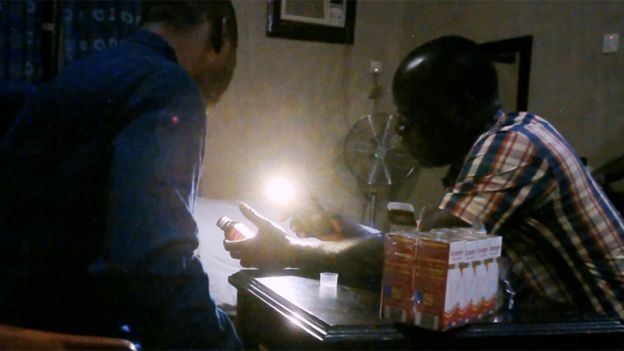
At an event in Sheraton Hotels and Towers, Ikeja, Lagos, on Monday, BBC unveiled ‘”Sweet Sweet Codeine”, a documentary on the five-month investigation.
It also launched Africa Eye, an investigation unit.
Advertisement
Speaking at the event, Toyosi Ogunseye, head of language services (West Africa) at BBC, said the responses from the investigation had been encouraging.
“We are happy with the responses we have been getting over this investigation. After we put it up on social media, people started saying, ‘It’s happening in Uganda; it’s happening in Kenya …’ People started sharing experiences,” she said.
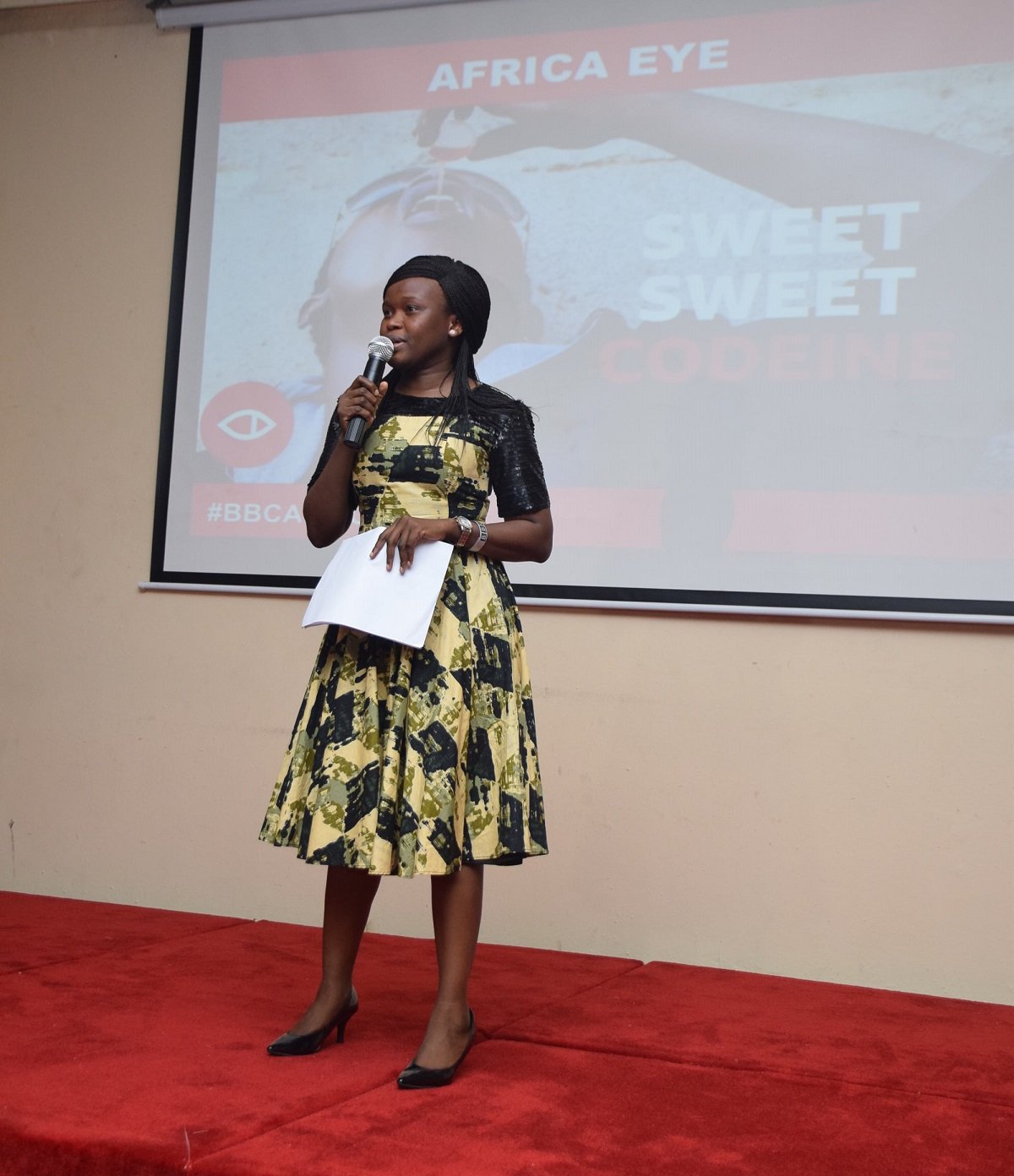
She also spoke about Africa Eye, disclosing that it would deliver up to 20 original and high-impact investigations across the continent every year.
“The new strand is part of the BBC’s commitment to invest in original content for Africa in English, French, Swahili and Hausa languages as part of the expansion of the BBC World Service,” she said.
Advertisement
“Africa Eye will create a network of trained investigative journalists across the continent – within BBC Africa, among the BBC’s partner organizations on the continent.”
Soyinka spoke about his encounters on the field, describing the trend as worrisome.
“It’s shocking what we found and how much of an epidemic cough syrup abuse has become in Nigeria. Equally shocking is the sheer size of criminal network involved in the illicit trade,” he said.
The undercover team also worked with the National Drug Law Enforcement Agency (NDLEA) during trips to some hot spots in Kano.
Advertisement
The agency showed weapons criminal drug gangs use to protect their business, including knives, swords, and a chainsaw that was used to attack an NDLEA officer.
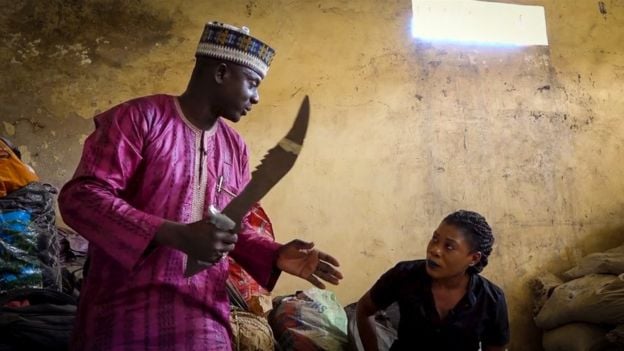
“We may not even arrest 10% [of cough syrup on the market]. It crosses all class, no matter the level – rich and poor, educated and illiterate, a beggar and a toddler,” Hamza Umar, commander of the NDLEA in Kano, told BBC.
Advertisement
In Kwara, the team secretly filmed one Baba Ibeji, an official of Bioraj Pharmaceuticals, a licensed medical producer which manufactures a codeine cough syrup called Biolin.
Unknown to him that he was on camera, the man spoke about his illegal cough syrup deals: “Even if someone wants to buy 1,000 cartons, we won’t give them a receipt.”
Advertisement
After selling the products to the undercover reporters, he asked them to take off the label, explaining that, that was one of the ways through which he avoids detection from authorities.
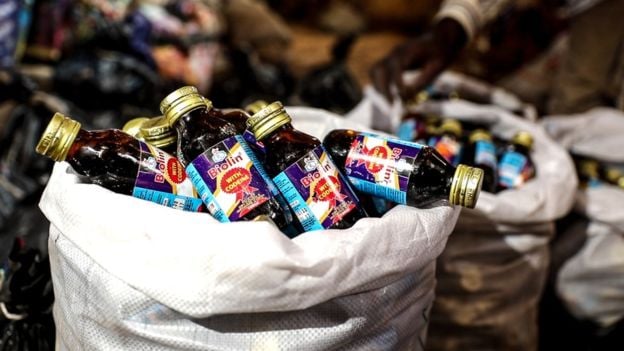
BBC said when it informed Bioraj that it had evidence that one of its officials was engaging in illicit activity, it responded with a statement saying the company only sells codeine cough syrup legitimately, and that the company chairman Bioku Rahamon personally guards Biolin sales.
Advertisement
At Emzor Pharmaceuticals, Chukwunonye Madubuike, a business development executive, was one of those caught in the act. He illegally sold 60 bottles of codeine syrup to the BBC team at a hotel in Isolo, Lagos.
“When somebody is addicted to something – you get me? – and he needs it, the price I don’t think is an issue on this,” he told the reporters.
“This is a product that I know that if I have one million cartons, I can sell it in a week.”
Emzor Pharmaceuticals said it is now investigating Madubuike, adding he has access to a very limited amount of Emzolyn with codeine and could not sell large quantities illegally.
The company added that as a “responsible and compliant business, we are reviewing its distribution policies, and treating our findings with the utmost seriousness”.
Meyer said she would be happy if the documentary could discourage just one person from abusing drugs.
1 comments
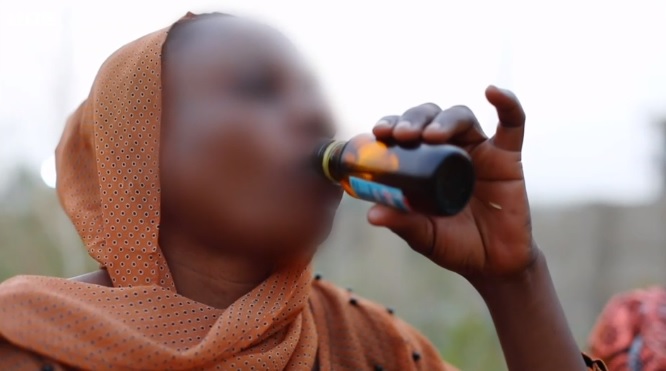

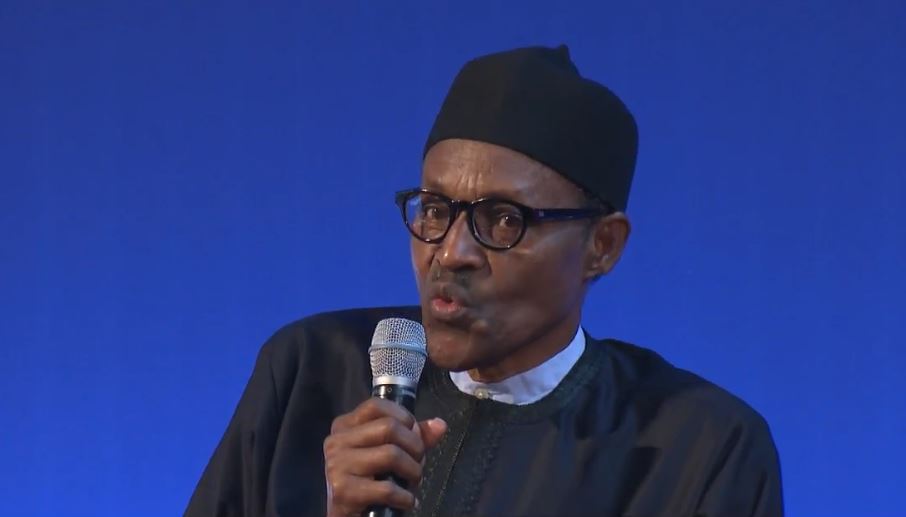
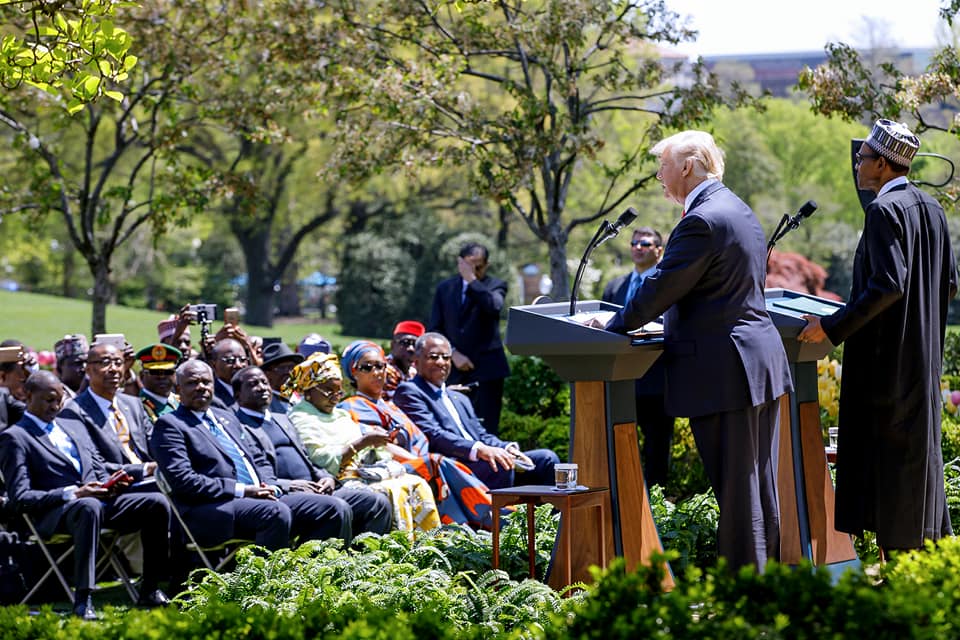
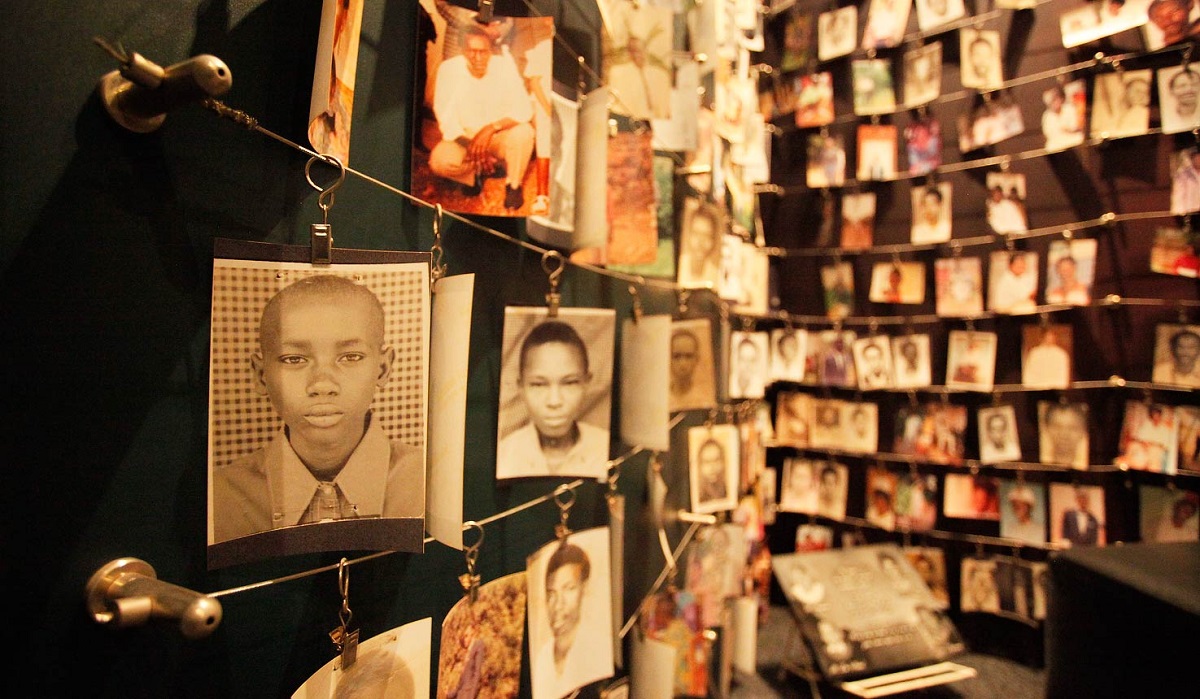
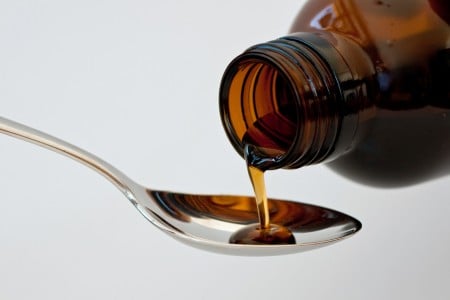
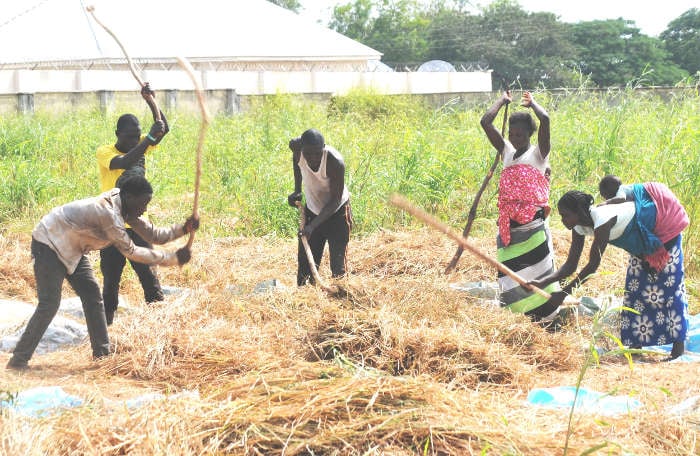
WOW THIS IS VERY REVEALING. A FRIEND OF MINE TOLD ME HOW SATISFYING IT IS TO GET HIGH ON CODEINE.